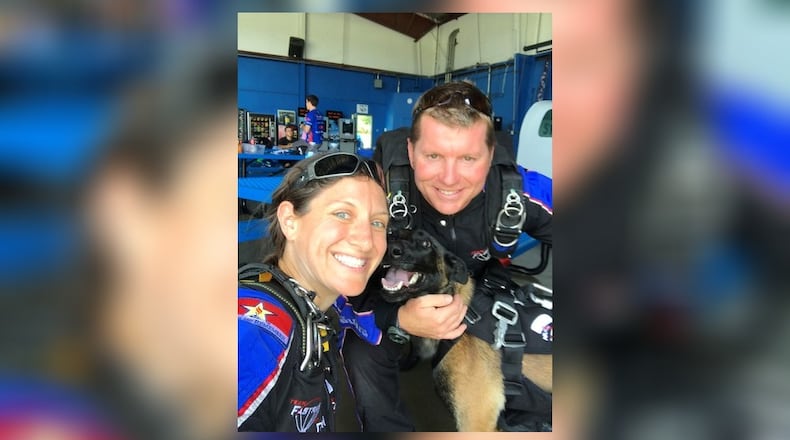“No way of telling,” Condrey said.
She stopped the ritual when she couldn’t stand the sound of the bullets rolling around in her drawer every morning when she got dressed.
Then on Sept. 3, 2018, Chief Petty Officer Ron Condrey, 45, a 25-year Navy veteran, committed suicide with a gunshot wound to his chest. It was nearly three years after he showed his first suicidal tendency. Once, his wife watched him walk into the ocean near their Virginia Beach residence with a gun in his hand. On that day, Condrey turned to his wife and said: “Stop, you’re making this harder.”
This month marks two years since his death as well as National Suicide Prevention Month.
Suicides by veterans continue to rise, according to the U.S. Department of Veterans Affairs. The number of veterans who commit suicide exceeded 6,000 each year from 2008 to 2017, and daily suicides rose from 15.9 in 2005 to 16.8 in 2017.
Since her husband’s death, Nicole Condrey, 38, Middletown’s mayor, has recounted the years he struggled with depression caused by brain injuries.
She has come to his conclusion: She did everything in her power to pull him out his suicidal state.
Condrey said her husband, a Master Explosive Ordnance Disposal (EOD) technician and Master Naval Parachutist, conducted missions around the world during his 14 deployments. He sustained a variety of Traumatic Brain Injuries during combat and training, including a helicopter crash, Humvee rollover and repeated explosive blasts, she said.
He died from “invisible wounds of war,” his wife said while sitting at the Veterans Memorial at Woodside Cemetery.
Two days after his death, Condrey’s brain was being studied to help researchers learn about what the injuries had done to him, and how to help others suffering from the disease.
Her husband’s brain damage was so severe he struggled to even compose an email. It took him two hours to write one sentence, she said.
She attended all of his VA medial appointments and monitored his anti-depression medications.
“Tried to keep him out of that mental state that he never escaped,” she said. “He couldn’t kick the depression. I felt like I failed him in the end."
Condrey scattered some of her husband’s ashes during a skydive in North Carolina and wears a necklace that holds his ashes. She never takes it off.
“He still jumps with me,” said Condrey, a member of Middletown-based Team Fastrax, a skydiving team and the reason the Condreys settled in Middletown several years ago. “No one in Middletown met the Ron I knew. He wasn’t in a good place. I was hoping jumping would pull him out of it. It didn’t happen.”
Condrey was given his service dog, Via, a 4-year-old Belgium Malinois. She considered turning the dog over to another veteran, then decided to keep the dog and use her as an ambassador for service dogs.
“Ron’s spirit is in her,” Condrey said as the dog sat at her feet.
Nicole and Ron met in 2013 while skydiving. He was performing a tandem jump with Nicole’s brother. They married two years later.
Toward the end of his life, the Condreys attended sessions at the Boulder Crest Retreat, a veteran-led organization that helps veterans and their families who have experienced trauma.
There, his wife said, they were taught this lesson: “Life happens for us, not to us.”
She thinks of those seven words daily. Her husband never leaves her memory.
“The hardest part was when other people were angry at him,” she said, wiping away a tear. “That made me mad at everybody else. I never felt anger toward him. I was just so deeply sad that I lost my partner I finally found. I felt like I had to be stronger for everyone else. You can’t be mad at him. He tried so hard.”
Nicole Condrey has tried to take steps to ensure her life didn’t stop the day her husband committed suicide. She remains active with Team Fastrax and is enjoying her first year as mayor.
“Ron’s depression and sadness were passed onto me through his death,” she said. “His struggles became mine. You pass it along to everyone who loves you."
He’s buried in Arlington National Cemetery, and his tombstone reads in part: “Never stop inspiring.”
She was asked about suicide and its impact of her life. There was a long pause as she seemed to search the cemetery grounds for the perfect word.
“I get a lump in my throat," she said.
Then another pause as tears filled her eyes: "Emptiness because for me it’s about the loss of something great; loss of potential.”
About the Author



